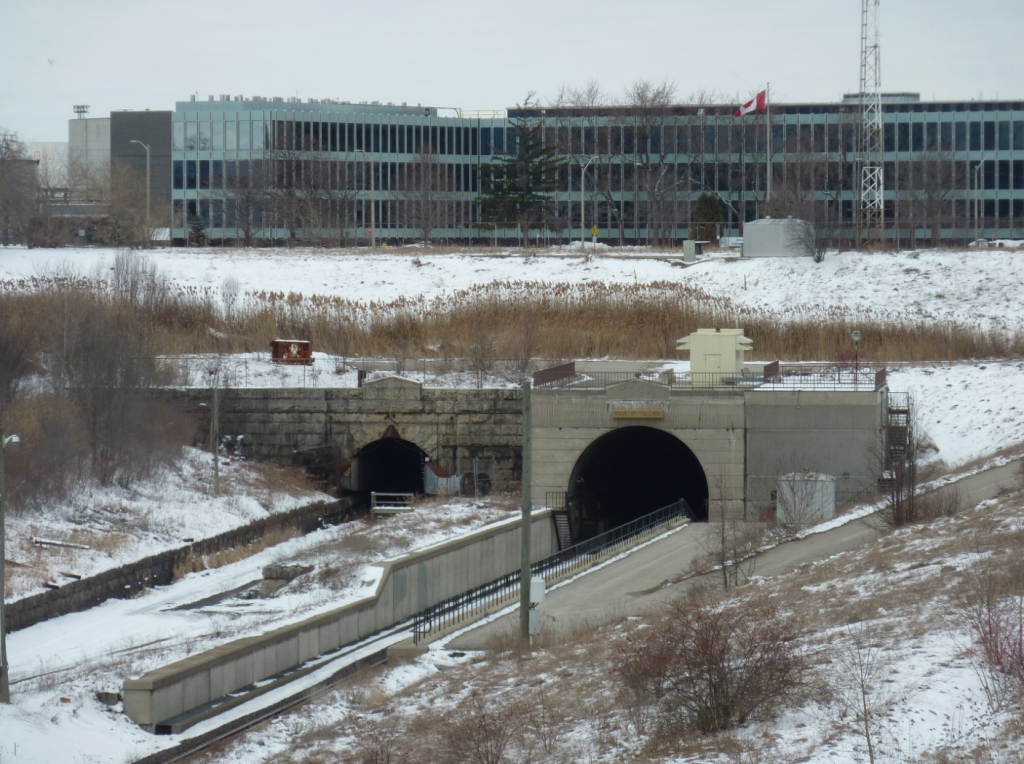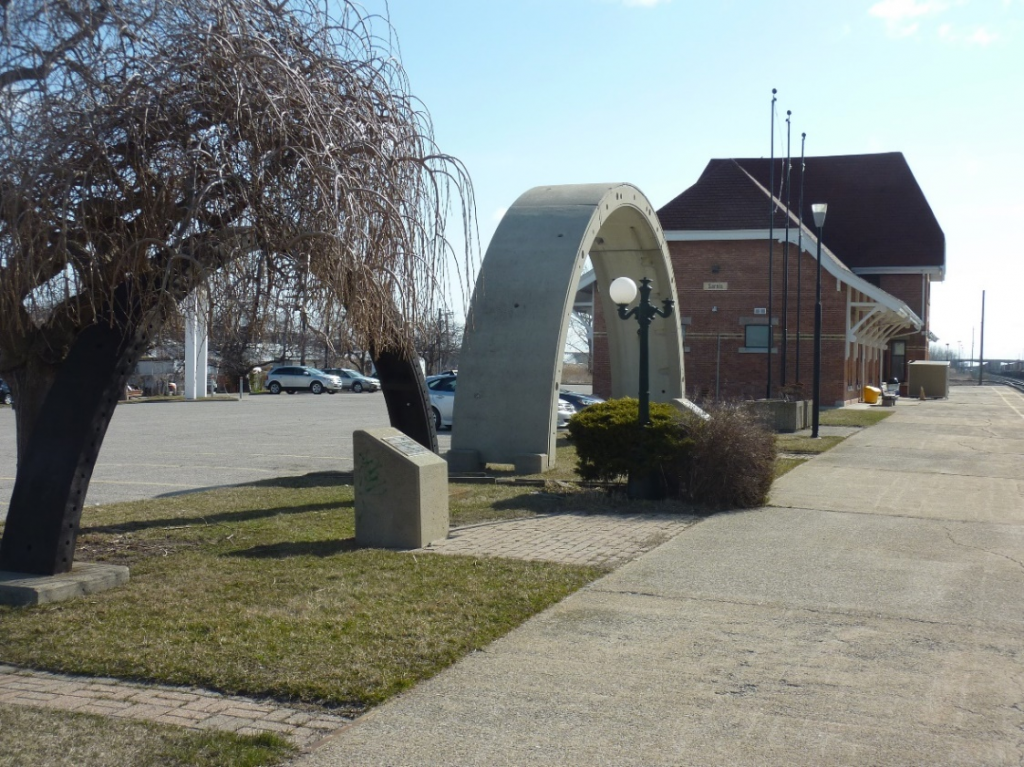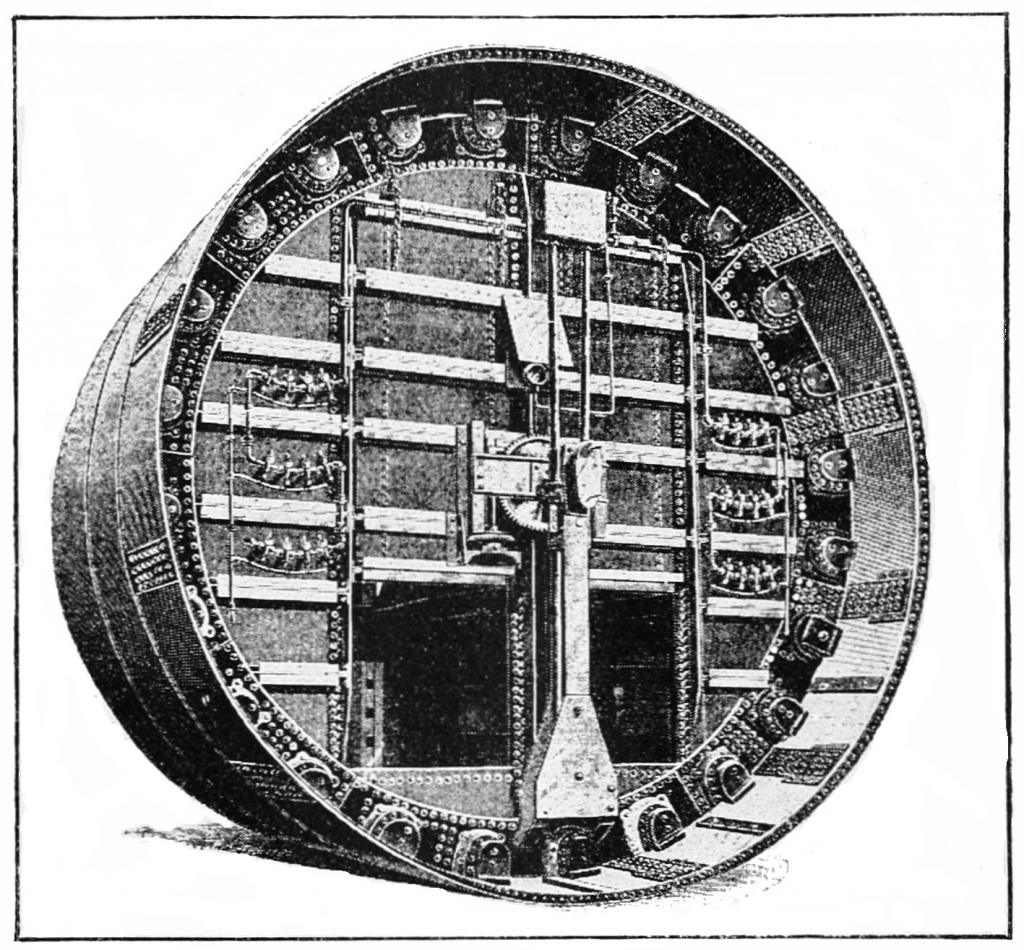St. Clair Tunnel, Sarnia, ON.

Site Location (East Portal): Lat: 42° – 57’ – 30” N.; Long: 82° – 24’ – 37” W. (GPS: 42.952794, -82.4138978). There is a good viewpoint near the intersection of St. Andrews and Shamrock Streets.
Plaque Location: Sarnia Via Rail Station (GPS: 42.9572827,-82.38892180). Take Highway 402 to the Indian Road exit, Indian Road south to Campbell Street (one block south of the traffic light at Confederation Street), west two blocks on Campbell Street.

Description: This 1837 m tunnel, with a bore of 6 m, linked the Canadian mainline of the Grand Trunk Railway with Chicago via Port Huron, Michigan. It was designed by Joseph Hobson, a Canadian engineer, who also supervised its construction. Tunnelling commenced from both ends in 1888 and on August 30, 1890, the two tunnels met. Train service began on September 19, 1891. Electrification of the line through the tunnel was completed in 1908 and remained until the introduction of diesel trains. With the construction of the adjacent Paul M. Tellier Tunnel in 1993-94, the original tunnel was sealed.



Historic Significance: This was the first subaqueous tunnel in North America and a significant engineering feat of the 19th century. Hobson’s innovative compressed-air cutting shield excavation and cast-iron tunnel lining solved the difficult challenge of tunneling through soft riverbeds. Joseph Hobson was Chief Engineer of the Grand Trunk Railway from 1882 until after 1907.

Plaque Text: National Historic Civil Engineering Site. THE ST. CLAIR TUNNEL. Shield driven in compressed air and lined with cast-iron segments. Construction 1888-1891. Engineer JOSEPH HOBSON 1834-1917. Canadian Society for Civil Engineering. 1990.
Site Historique National de Génie Civil. LE TUNNEL SAINT-CLAIR. Percé grâce à un bouclier de l’air comprimé et revetu de voussoirs en fonte. Construction 1888-1981. JOSEPH HOBSON Ingénieur 1834-1917. Société canadienne de génie civil. 1990.
Plaque Unveiling Ceremony:


Links to Further Documentation:
Dan McCaffery, “The Original River Tunnel”, Sarnia Observer/Sarnia Historical Society, 2003.
G. W. Brock, “The Man Who Built the St. Clair Tunnel”, Maclean’s, 1909.